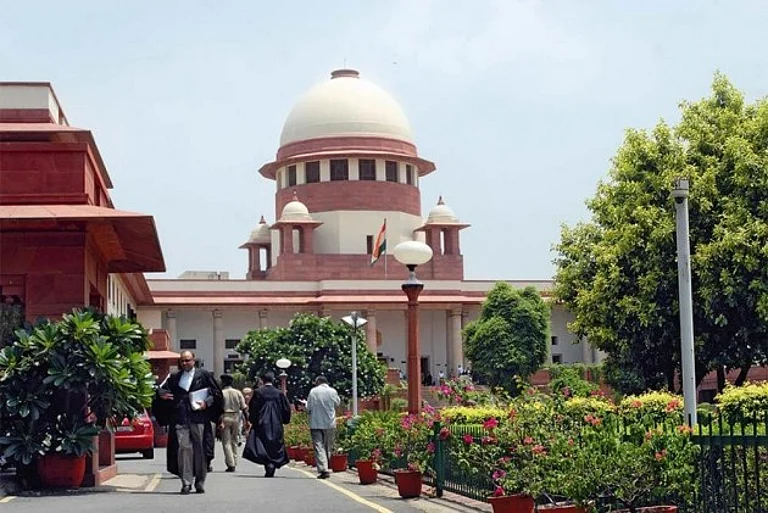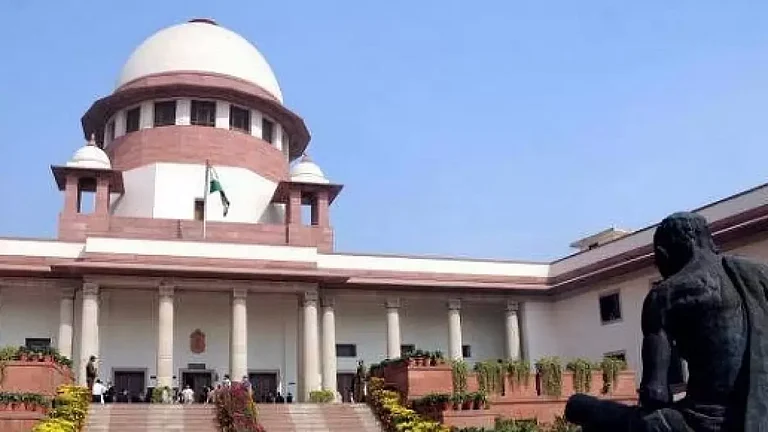Over 8.82 lakh execution petitions in civil cases remain pending across India.
Supreme Court orders high courts to ensure disposal within six months.
Karnataka High Court fails to provide necessary data, asked to explain delay.
Supreme Court Flags 8.82 Lakh Pending Execution Petitions In Civil Cases
The SC has raised alarm over 8.82 lakh pending execution petitions in civil disputes, directing high courts to enforce six-month disposal timelines and hold presiding officers accountable.
The Supreme Court has expressed serious concern over the non-implementation of over 8.82 lakh judgements in civil disputes across India, describing the backlog as “highly disappointing” and “alarming”.
A bench of Justices J B Pardiwala and Pankaj Mithal made the remarks while reviewing compliance with its March 6 order directing all high courts to ensure that civil courts decide execution petitions within six months. Execution petitions are filed by decree-holders seeking enforcement of court verdicts.
According to PTI, the bench noted that in the last six months since the March order, only 3,38,685 execution petitions have been disposed of. “The statistics which we have received are highly disappointing. The figures of the pendency of the execution petitions across the country are alarming. As on date, 8,82,578 execution petitions are pending across the country,” the court observed.
The Supreme Court emphasised that prolonged delays in executing decrees render the process ineffective, terming it “nothing short of travesty of justice” in its October 16 order. The bench reiterated its request to all high courts to devise procedures and guide district judiciary for the prompt disposal of pending petitions.
The court also noted a lack of compliance from Karnataka High Court, which failed to furnish data on pending execution petitions. PTI reported that the apex court asked the registry to issue a reminder and granted two weeks to the Registrar General of Karnataka High Court to explain the lapse.
The matter has been scheduled for reporting further progress on April 10, 2026. The Supreme Court expects complete figures from all high courts regarding pending and disposed execution petitions by that date.
The March 6 directive came after noting that execution petitions in civil disputes were pending for three to four years, defeating the purpose of the decrees. Justice Pardiwala had observed that such delays were unacceptable.
The verdict arose from a decades-old civil dispute over land in Tamil Nadu between Ayyavoo Udayar and other parties. Udayar had filed a civil suit in 1986 seeking specific performance of a sale agreement executed in 1980.
Multiple orders directing execution of the sale deed and delivery of possession were either dismissed or not implemented over the years, prompting the Supreme Court to describe the high court’s actions as an “egregious error”.
PTI reported that the apex court has made it clear that presiding officers would be held administratively accountable for delays in disposing of execution petitions. High courts are expected to issue administrative orders or circulars directing the district judiciary to ensure execution petitions are decided within six months.
(With inputs from PTI)

